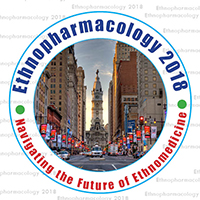
Jing Wang
Institute of Neurosciences of Montpellier, France
Title: New strategies for improving the quality of life of cancer survivors: Reversible p53 inhibition
Biography
Biography: Jing Wang
Abstract
In recent years, with the improvement of cancer survival through more effective treatment, the emphasis has been in trying to minimize the side effects caused by chemo and radiotherapy, to ensure that patients have the best quality of life throughout their cancer journey. The tumour suppressor p53 is widely implicated in a broad range of cancers. Indeed, p53 is either mutated or inactivated in the majority of cancers. Abundant evidence indicates that toxicity caused by DNA-damaging anticancer therapies in normal tissues is also mainly mediated by p53. p53 accumulates in the cells shortly after anticancer challenges and acts as a nuclear transcription factor that modulates the expression of numerous p53-responsive genes (e.g. p21Waf1, 14- 3-3-σ, Mdm2, cyclin G, Bax). This initiates a cascade of events leading to massive programmed cell death in specific normal tissues during the systemic genotoxic stress associated with chemo and radiotherapies. This makes p53 a target for therapeutic suppression: An approach to reduce side effects associated with treatment of p53-deficient cancers. Here I summarize the role of p53 and the possibilities of its manipulation to improve side effects during active treatment through survivorship.

